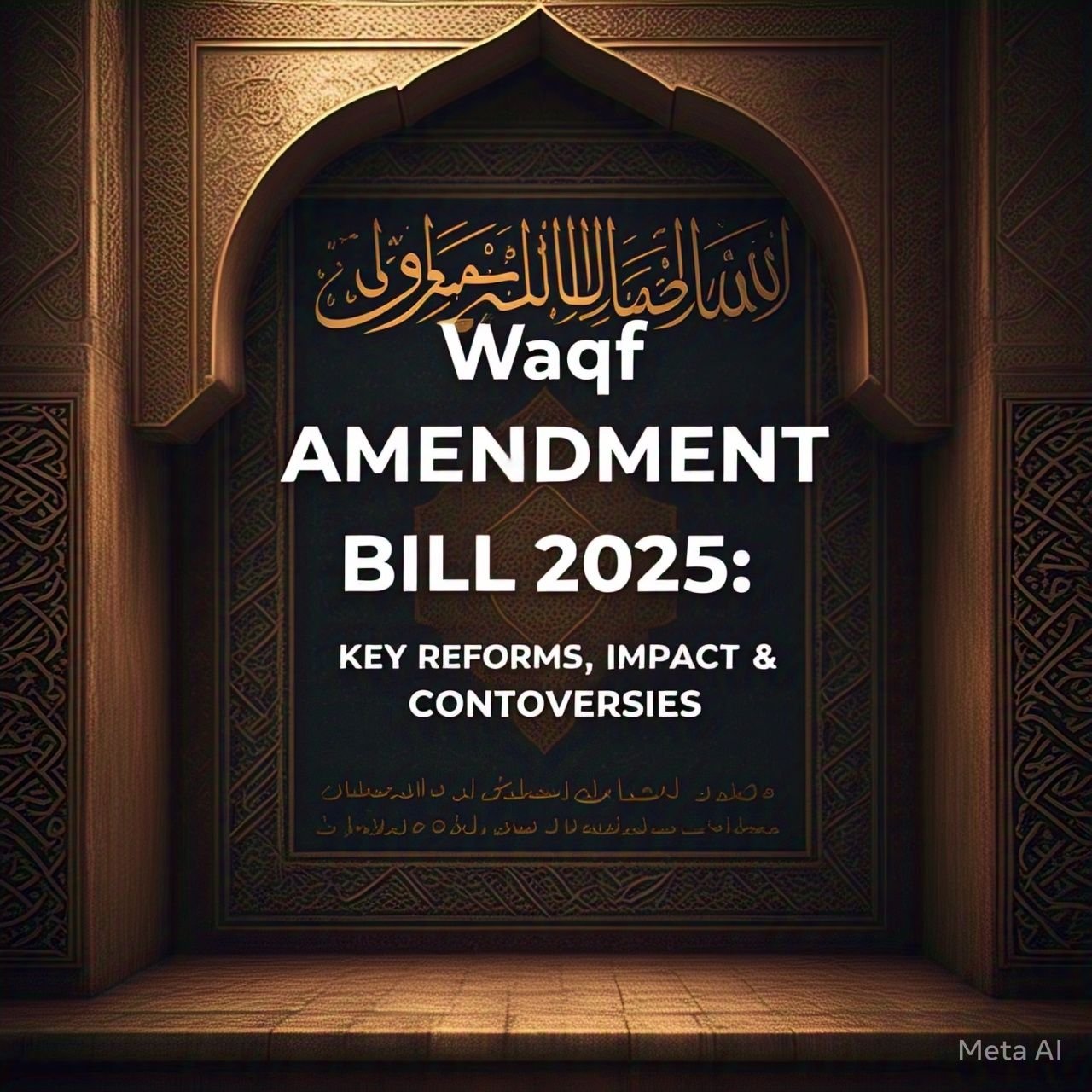
The Indian government has introduced the Waqf (Amendment) Bill 2025, incorporating all 25 changes suggested by the Joint Parliamentary Committee (JPC). This bill, which aims to streamline waqf governance, tighten regulations, and curb potential misuse of waqf properties, marks a significant shift from the original framework. While the ruling party hails it as a necessary reform, the opposition has expressed concerns over certain provisions. Let’s delve into the key aspects of this bill and its potential impact on waqf administration in India insightfully.
Key Highlights of the Waqf (Amendment) Bill 2025:
- Redefining Eligibility for Waqf Donations: The original waqf law stipulated that only “practicing Muslims” who had maintained their faith for at least six years could donate properties to waqf institutions. This clause raised constitutional concerns regarding religious discrimination and was flagged as problematic. The revised bill now allows any individual to donate property for waqf, provided they can demonstrate adherence to Islamic principles, thereby broadening the scope of participation while maintaining religious sanctity.
- Strengthened Oversight and Governance: A major change brought by the bill is the enhanced role of government authorities in managing waqf properties. The government has empowered a higher-ranked officer, above the rank of Collector, to conduct waqf property surveys. This aims to reduce disputes and prevent unauthorized claims over waqf lands. Additionally, the bill proposes stricter scrutiny of waqf claims, ensuring that properties declared as waqf are verified with sufficient legal backing.
- Addressing Waqf Encroachments: Waqf properties across India have been subject to numerous encroachments and unauthorized usage. The amended bill mandates that all waqf properties be surveyed and documented in a government-managed database. This will help in identifying and reclaiming encroached lands while preventing future disputes. Additionally, it introduces stricter penalties for encroachment, ensuring waqf assets remain protected.
- Making Waqf Registrations More Transparent: The bill has also tackled issues related to waqf registration. Earlier, waqf properties declared before a magistrate automatically gained waqf status, leading to instances of fraudulent claims. Now, the bill ensures that a thorough verification process is conducted before a property is officially recognized as waqf. This step aims to eliminate ambiguous claims and reduce legal disputes surrounding such properties.
- Clear Guidelines on Waqf Inheritance and Beneficiaries: One of the most debated aspects of waqf administration has been the inheritance rights of beneficiaries. The new bill provides explicit guidelines on waqf inheritances, ensuring that legal heirs and rightful claimants have clarity over their entitlements. This is particularly important for family waqfs (waqf-alal-aulad), which often face internal conflicts over succession.
- Distinguishing Between Trusts and Waqfs: The bill makes a significant distinction between waqfs and private trusts, an issue that has long led to legal ambiguities. Under the revised provisions, waqf properties will now have a distinct regulatory framework that separates them from other charitable trusts. This will ensure that waqf institutions adhere to specific governance norms, preventing their misuse under the guise of religious or charitable activities.
Why This Bill Matters?
- A Step Towards Greater Accountability: By mandating digital records and a centralized waqf database, the bill aims to bring waqf management into the 21st century. This transparency will make it easier to track property usage, identify encroachments, and ensure that waqf revenues are used for the intended charitable and religious purposes.
- Balancing Religious Freedom and Legal Framework: The government has attempted to strike a balance between religious traditions and legal oversight. While ensuring waqf properties continue to serve their intended purpose, the bill also tightens loopholes that could be exploited for unlawful land acquisitions.
- Challenges and Opposition: Despite its reforms, the bill has faced criticism from opposition parties and some religious organizations. Concerns have been raised over the increased governmental control over waqf affairs, with critics arguing that the amendments could undermine the autonomy of waqf boards. Additionally, the requirement to prove adherence to Islamic practices for making waqf donations has been questioned for its potential constitutional implications.
A Necessary Reform or an Overreach?
The Waqf (Amendment) Bill 2025 is a landmark piece of legislation that seeks to modernize waqf governance in India. While it introduces much-needed transparency and accountability, its implications on religious freedom and administrative control remain topics of debate. As the bill moves through the legislative process, its effectiveness will largely depend on its implementation and how it balances governance with religious rights.
With over 9.7 million acres of waqf properties in India, valued at billions of dollars, ensuring their proper management is crucial. Whether this bill will serve as a progressive reform or lead to new controversies is yet to be seen, but one thing is clear—it has set the stage for a transformative change in India’s waqf administration.

